"SEC | S20W4: "ROLE OF AGRICULTURE IN THE ECONOMY"
Hello Everyone
This is @max-pro from, #Bangladesh
Wishing everyone good health, I am here to take entries for the fourth week of engagement contest. Thanks Steemit team for engaging us all with such wonderful topics.
a. Explain the social and industrial roles of agriculture in your country, sighting one of the main grown crop.
Agriculture plays a very important role in our social and industrial sector in Bangladesh. Rice is one of the major crops grown in Bangladesh, which plays an important role in the agricultural, social and industrial sectors of the country. Below are its various roles.
| Social Role | 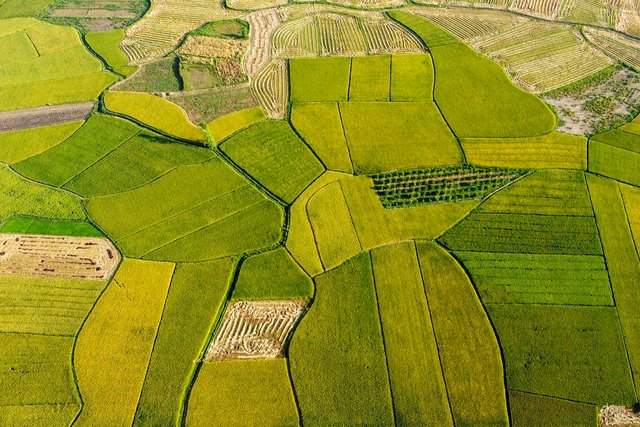 Pixabay Pixabay |
|---|
Paddy cultivation has created the livelihood of a large section of the rural population. It strengthens the economic structure of rural areas.
Rice cultivation is deeply involved in the agrarian society of Bangladesh. Harvesting time is directly related to various festivals like New Year, Navanna festival etc.
Harvesting of paddy creates mutual cooperation and solidarity among agricultural workers which helps to strengthen social bonds.
| industrial roles | 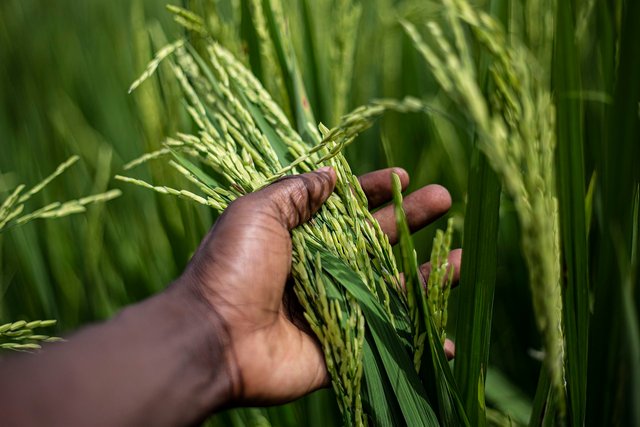 Pixabay Pixabay |
|---|
Rice mill industry is widely spread in the country to produce rice from paddy. It is a major part of the country's food processing industry.
Byproducts from rice cultivation such as rice husk, husk, straw etc. are used in various industries such as paper, fuel and livestock feed. This creates additional earning opportunities in the industry.
Bangladesh's rice exports also contribute to the commercial sector, helping the country earn foreign exchange.
Thus rice cultivation is having an important impact on the economic and cultural life of Bangladesh in the social and industrial spheres of agriculture.
b. How has this main grown agriproduct helped in reducing poverty and as well promote rural development in your country?
Rice is the main production crop of Bangladesh. Rice as the main agricultural product of Bangladesh has played an important role in poverty alleviation and rural development. Below are the implications.
| poverty reduction | 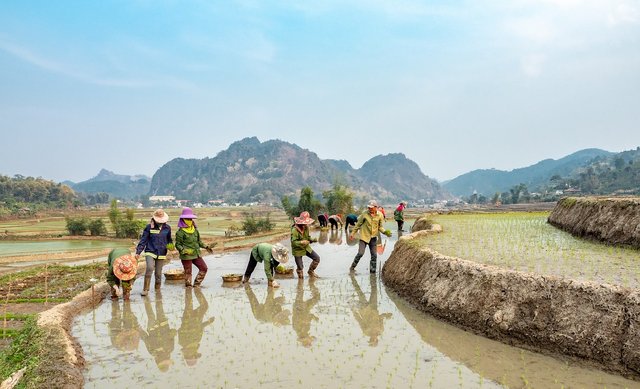 Pixabay Pixabay |
|---|
Paddy cultivation has helped to increase the income of millions of farmers in the country. Through rice cultivation, farmers have been able to improve their standard of living which directly contributes to poverty reduction.
It has created a lot of employment opportunities in various sectors related to paddy cultivation such as field cultivation, paddy cultivation, marketing. In particular, employment is created for agricultural laborers on a seasonal basis.
As a result of rice production, the country's food security has been ensured. The availability of rice has met the food needs of the people which is helpful in meeting the nutritional needs of the poverty stricken population.
| Rural development | 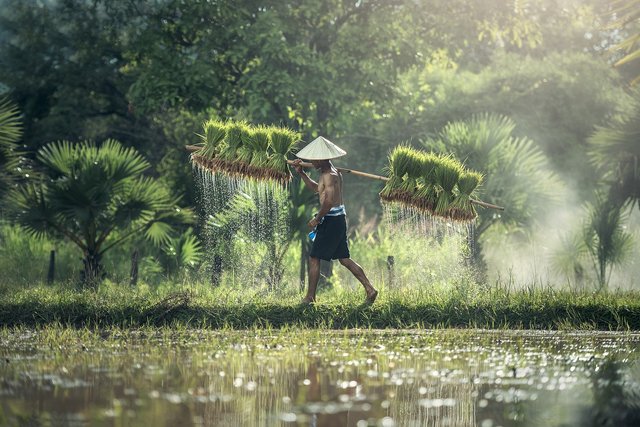 Pixabay Pixabay |
|---|
Rice production has served as the main driving force of the rural economy. Farmers improved their economic status through rice production and accelerated economic activity in the local market.
Irrigation system, road and communication system of the country have been developed through paddy cultivation. As a result of these infrastructural developments, the economic potential of rural areas has increased.
Farmers are helping each other and learning the use of modern agricultural technology through rice-based cooperative movements and agricultural extension. It is helpful in expanding education and increasing efficiency in rural areas.
Various small scale industries have been developed from the by-products of paddy such as straw, husk and paddy husk. Through this, rural entrepreneurship and small scale industries are developing, creating employment and income opportunities.
c. What are the main challenges facing your country's top crops (e.g., cocoa, palm, maize, wheat, rice, etc.) in terms of economic impact?
Although the production of top crops of Bangladesh such as maize, wheat, rice etc. has significant economic contribution, there are several challenges in these crops which have a negative impact on productivity and income.
| Natural disasters | Disasters such as floods, droughts and cyclones cause major shocks to crop production and supply systems, which can reduce the economic value of crops. |
|---|---|
| Climate Change | Climate change affects crop production time and yield. Especially in grains like rice, wheat and maize. |
| Lack of Technology | Lack of modern technology and lack of proper training in the agricultural sector results in low productivity which lags behind in market competition. |
| Lack of economic infrastructure | There is a lack of proper infrastructure for harvesting, storage and transportation, which increases crop wastage and cost of production. |
| Limited agricultural land | Cultivable land is shrinking due to population growth, which threatens crop production in the long run. |
| Price stability and market | Farmers do not get fair price due to lack of stability of crop prices in local and international market which has negative economic impact. |
d. What current or past government initiatives are boosting agricultural productivity in your country?"
The government system of Bangladesh has been very weak for the past few years. But before that, government initiatives were taken at various times to increase agricultural productivity in Bangladesh which played an important role in the development of agriculture sector.
Agricultural extension services.
"A house-a-farm" project.
National Agricultural Policy.
Development of improved seeds and varieties.
Agricultural credit and financial protection of farmers.
Agricultural Mechanization Project.
These government initiatives have played a significant role in increasing the productivity of the agricultural sector in Bangladesh as well as improving the income and quality of life of the farmers.
e. What solutions can enhance agricultural productivity and growth in your country?
Various solutions can be effective to increase agricultural productivity and growth in Bangladesh. These solutions depend on the use of modern technology, policy changes, infrastructure development and capacity building of farmers. Below I briefly discuss some key points.
The use of machinery in agriculture should be increased, such as tractors, power tillers, combine harvesters, etc. Land health assessment, water management and pesticide use can be made more effective using modern technologies such as data analytics. Use of high yielding, fast growing and climate tolerant varieties of seeds should be encouraged.
Such varieties should be made more popular for rice, wheat and maize. Modernization of irrigation system and introduction of efficient water use technology is necessary to deal with the effects of climate change. More investment in agricultural research is needed by government and private research institutions
Effective extension services are needed to directly reach the farmers at the field level. Training programs should then be expanded to teach farmers the use of modern technology and proper agricultural practices. Farmers should develop an effective market system for selling their crops, so that they can directly sell their crops at remunerative prices without the influence of middlemen.
It is necessary to increase the availability of loans at low interest rates for the farmers, so that they can make the necessary investments to increase production. Improved storage and cold storage facilities should be increased to prevent crop wastage, so that farmers can get fair price after harvest. Improved transport and communication systems should be developed in rural areas, so that farmers can reach their produce quickly to the market.
If these solutions can be implemented, the agricultural productivity and growth of Bangladesh will increase significantly and farmers' income and quality of life will improve. So I could discuss today's topic from my knowledge. Hope it will benefit many.

So I am Inviting my lovely Steemian friends @patjewell, @irawandedy, @shohana1, @kouba01, @wilmer1988, to Participate in this Competition.
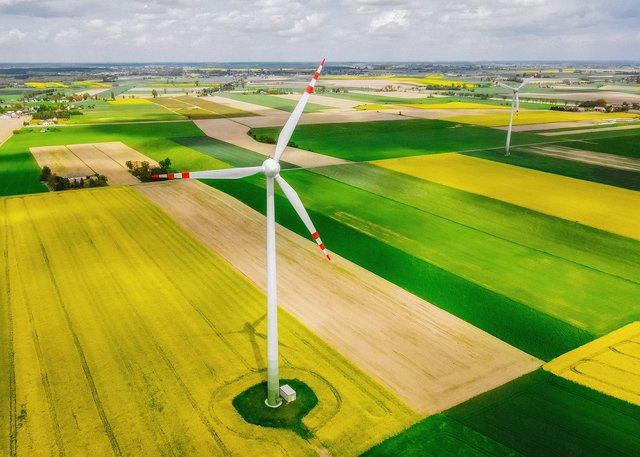
Twitter share link : https://x.com/Maxpro51412/status/1840946866533646490?t=72gpz8Xq6ErIxL5gSsXV1A&s=19
This post has been upvoted/supported by Team 5 via @philhughes. Our team supports content that adds to the community.
Thanks for your support. Your valuable support encourages me to give my best. Respect for you always 😍.
Agriculture plays a vital role in the ecnomy of any country.
Agriculture contributes about 2-3% to South Africa's total GDP. You might think this is a small percentage compared to other sectors like services and manufacturing but it is plays a crucial in job creation, food security, and of course also rural development.
Best wishes!
What you mention is what I hear in passing about the contribution of African agriculture. Thanks for such a nice comment.
Pleasure!☕
Welcome to the agro-learning challenge season 20.
Observations and suggestions:
. It is interesting to note the Navanna festival, which is one way the social system is strengthened. I was expecting to read how how paddy has helped to improve the livelihoods of people in the area, but that was missing in your first point.
. However, you have nicely attended to all other questions.
Thank you for your participation.
We hope to see you in week 5.
Thank you very much for observing my post and giving such a valuable review.